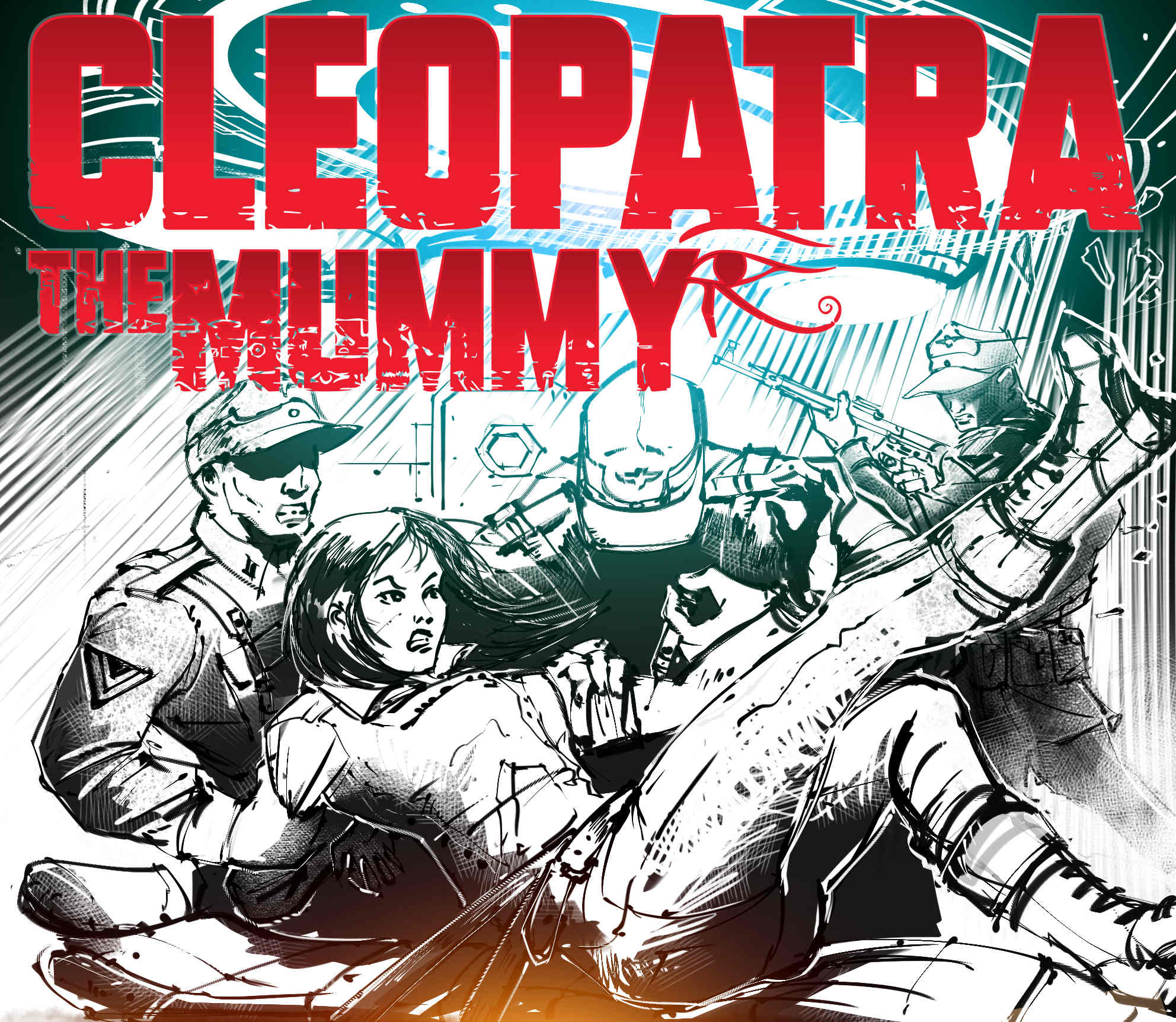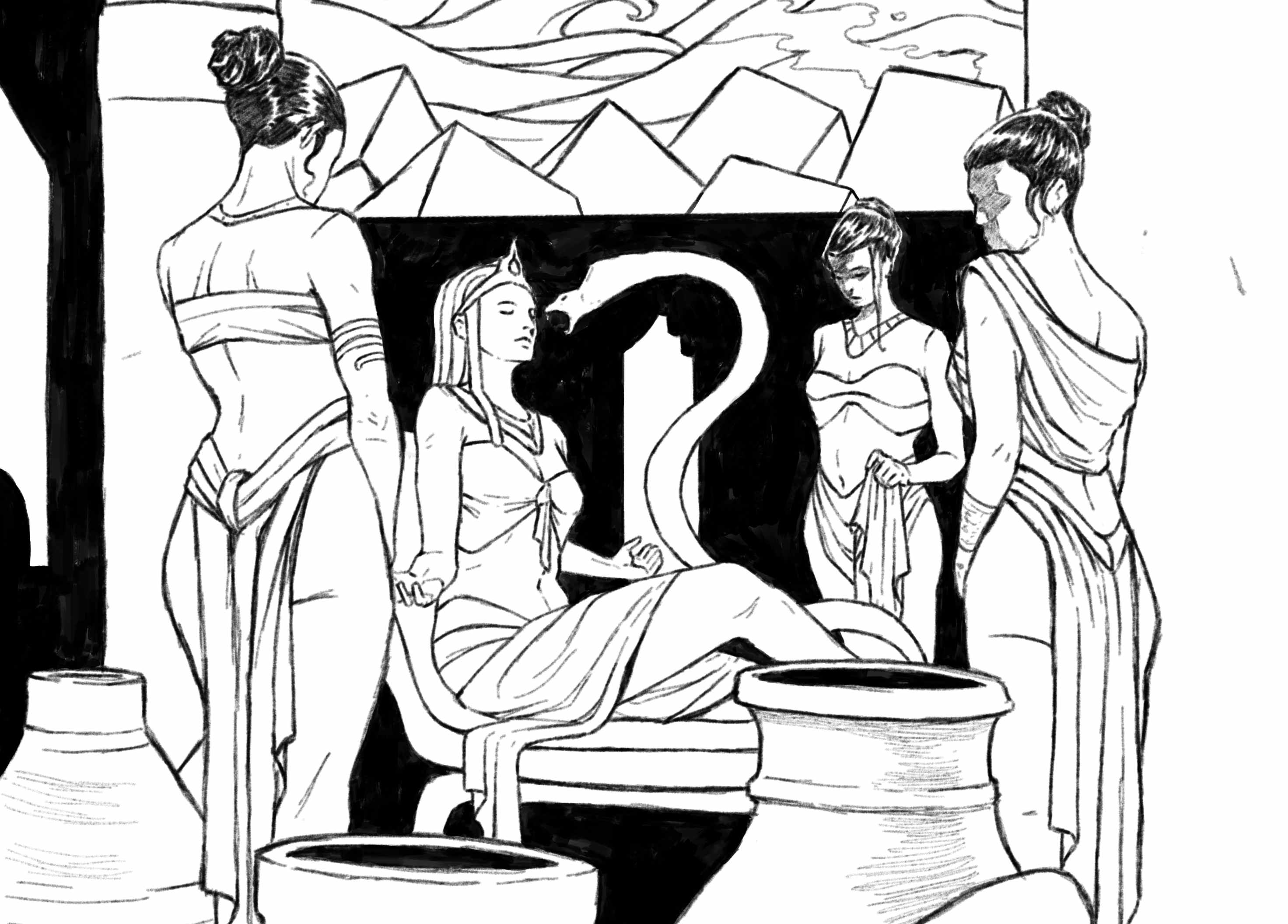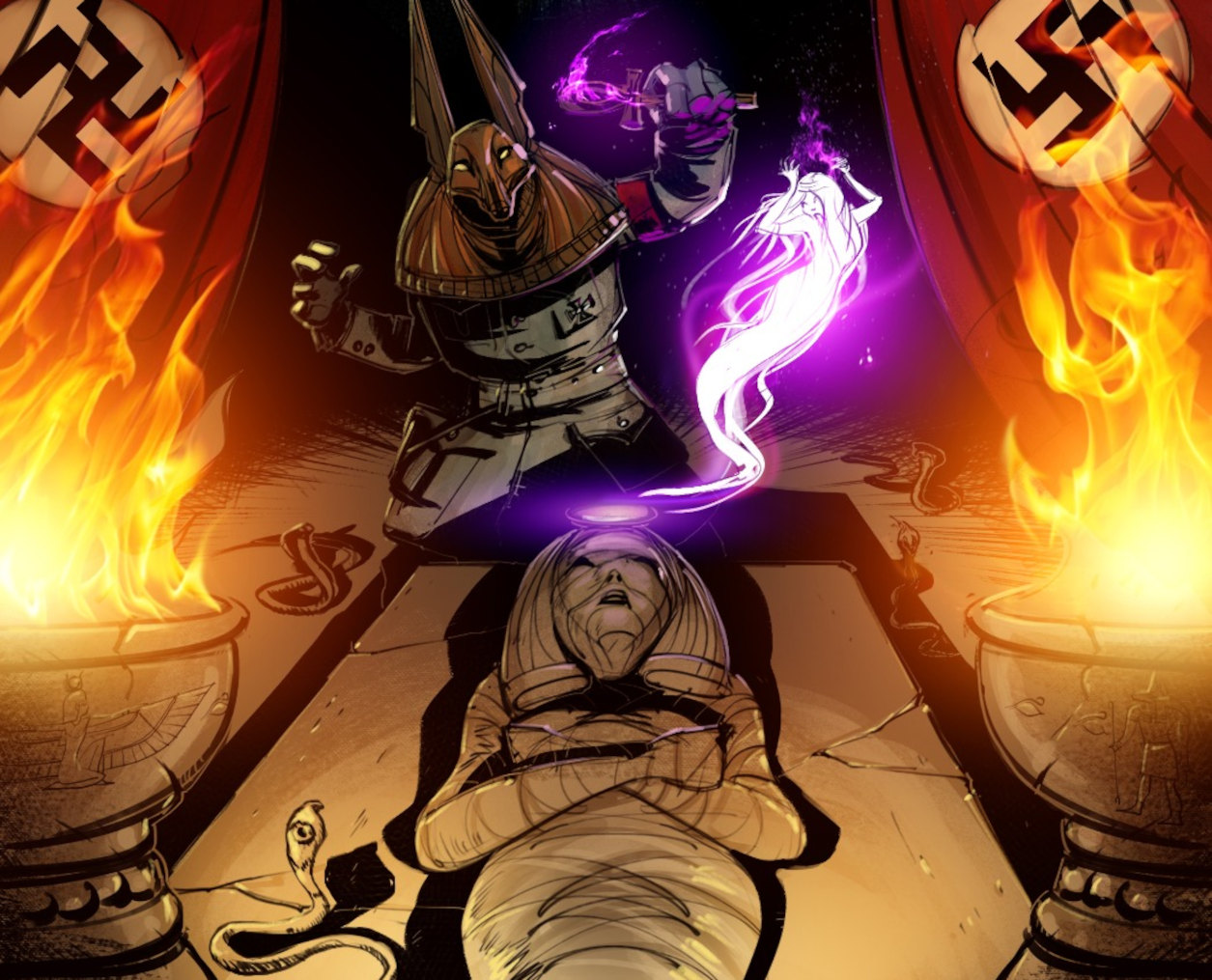|
TOP WRITING TIPS FOR NETWORK TV
Please use our A-Z to navigate this site or return HOME
KIDNAPPED - Charley Temple's curiosity gets the better of her. She is captured, having rather recklessly broken into a high security laboratory complex. Copyright illustration, Cleaner Ocean Foundation © July 2022. All rights reserved.
AMAZON QUEEN - The Elizabeth Swann glides up the famous South American river, John and Dan at the helm, enjoying the exotic jungle scenery, scanning the riverbed topography, and logging the wildlife - as she goes. Copyright picture, Cleaner Ocean Foundation © August 2022. All rights reserved.
Pilot and follow on series, adaptation. We can adapt our 'Cleopatra' story, or movie script to a TV series for you. Please contact the Cleaner Ocean Foundation Limited for a copy of the movie script.
SUICIDE - The Queen of Egypt takes her own life with a poison asp, having lost the Battle of Actium, her lover Marc Antony, and fearing the worst from Octavian, the first Roman Emperor. Copyright illustration, Cleaner Ocean Foundation © July 2022. All rights reserved.
TWELVE TOP WRITING TIPS
Many
writers will tell you that today, it’s all about television: network, cable,
and mostly streaming. But if you have feature film spec, does that mean you have start from scratch?
Not really. You can rework a movie screenplay into a dramatic TV pilot
and follow on episodes. When doing so, here are some pointers to keep in mind.
Consider how many characters you will feature. Typically 4 or 5 with a stronger ‘lead’ character seems to work. Pick a handful of shows and check for yourself what works.
Create characters that will constantly create their own conflict, even if just locked in a room together. Take a look at Family Guy for example: a slob dad, an uptight mum, a scheming baby, and an intellectual dog. Put any two of those in a room together and they would be arguing in 5 minutes, just because their personalities are so different. Conflict is key, both for drama and comedy – and having characters that generate it automatically, rather than relying on outside ‘plot’ will be extremely helpful.
In general, if you’re writing a returning series, especially a sitcom, your characters shouldn’t change, grow or arc – they need to be reset to their default position at the end of every episode. They may learn, but they don’t grow. There are obvious exceptions to this, but it’s a good rule of thumb.
EXAMPLE:
A show like Game of Thrones is a good example. Yes, it is fantasy and the dragons are
amazing. Yes, it’s action and there are brutal battles with magical weapons, but at the end of the day, we all want to know if Daenerys is going to end up with Jon Snow. The more conflict you can bestow onto your characters, the better. Cersei and Jamie Lannister aren’t just lovers, they are brother and sister, adding that extra layer of conflict. Tyrion isn’t just the black sheep of the family, he’s also a dwarf, adding more conflict. In TV, conflict is king.
A
teaser is two to three pages that will introduce the reader/viewer into the world of your pilot. It will tease the main conflict of the show. This will also need to have a hook to ensure the viewer will want to keep watching.
Six acts seems to be popular nowadays but the standard four still works.
Though better with six.
Think of this as your sales pitch and include why people will want to watch the show (e.g. it’s a untold story, or it’s groundbreaking in some way, or it sheds light on something happening in society today).
Even if you’re only writing one or two episodes on spec, create a series bible that contains the bigger picture. Character bios, episode outlines for the whole series, maybe some background, notes on the setting etc. Keep it snappy and interesting though – the word ‘bible’ can be misleading – think of it more as a pitch document.
7. Which network?
How a TV script is structured depends largely on which TV network you target. For example, most networks run commercials, so the script must be pretty rigidly structured to accommodate the commercial breaks. America has twice adverts, over UK television. So a script aimed at UK TV would need to be structured differently, with half as many breaks). Generally, the end of each Act has to coincide precisely with each subsequent commercial break.
So a fair bit of homework to do before
you actually start writing the script. You need to decide where you
might get a break. Geographical location may play a part here.
9.
Dialogue Comes Last
10.
Use ABC plotting
11.
Ad Breaks are Act Breaks
Do as much research into formatting as possible. It can vary quite widely and you need to match it to the preferred style of whomever you are submitting to.
12. Know your Audience(s)
You need to have a specific audience in mind – a good way to research this is paying attention to the target market of adverts played during similar shows. You also need to have an idea when you see your show airing and what content is suitable for that time. Research the watershed rules. Finally, you need to know who broadcasts shows like this: BBC 1 and BBC 3 are very different, let alone Channel 4, Sky, and of course all the independent production companies. Do your research.
THE PERFECT FORMULA
Much
as we'd like to think so, there is no perfect formula. The 'go-to formula' for series success is attaching well-known actors, having a skilled writer deliver a spectacular pilot, and then have a prime slot in TV schedules.
NETWORK STREAMING
Years ago, executives would advise you not to make things too complicated, not to have too much serial story, because the audience wouldn’t remember what had happened last week.
FEEDBACK
Don’t Be Afraid of Feedback, Seek It.
Screenwriters have got to be able to not only accept feedback — but seek
it.
*
A soap opera is a television series designed to slot in commercial
breaks. Hence, "soaps" have become a powerful advertising
medium.
REPLICATION - More than a simple cloning operation. Cleopatra is replicated from her DNA, recovered by Safiya Sabuka and Musa Bomani, Egyptologists, gone over to the dark side, in frustration at being passed over, by less able archaeologists. Copyright picture, Cleaner Ocean Foundation © July 2022. All rights reserved.
M O V I E P L O T O U T L I N E
|
|
|
|
|
|
Please use our A-Z to navigate this site or return HOME
This website is Copyright © 2022 Cleaner Ocean Foundation & Jameson Hunter.
|



